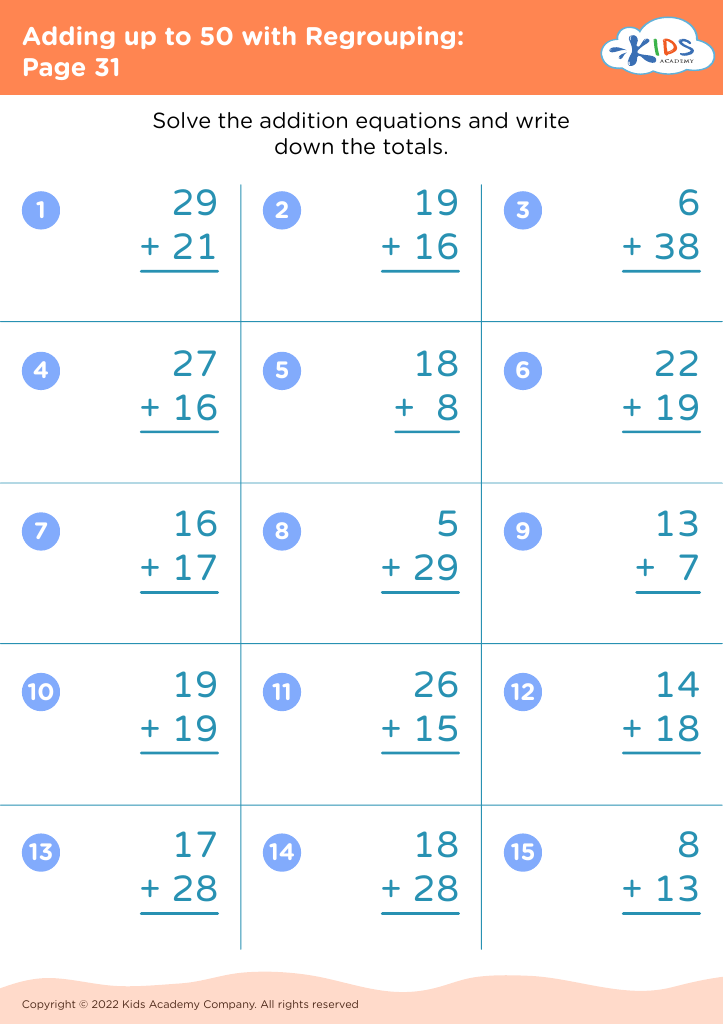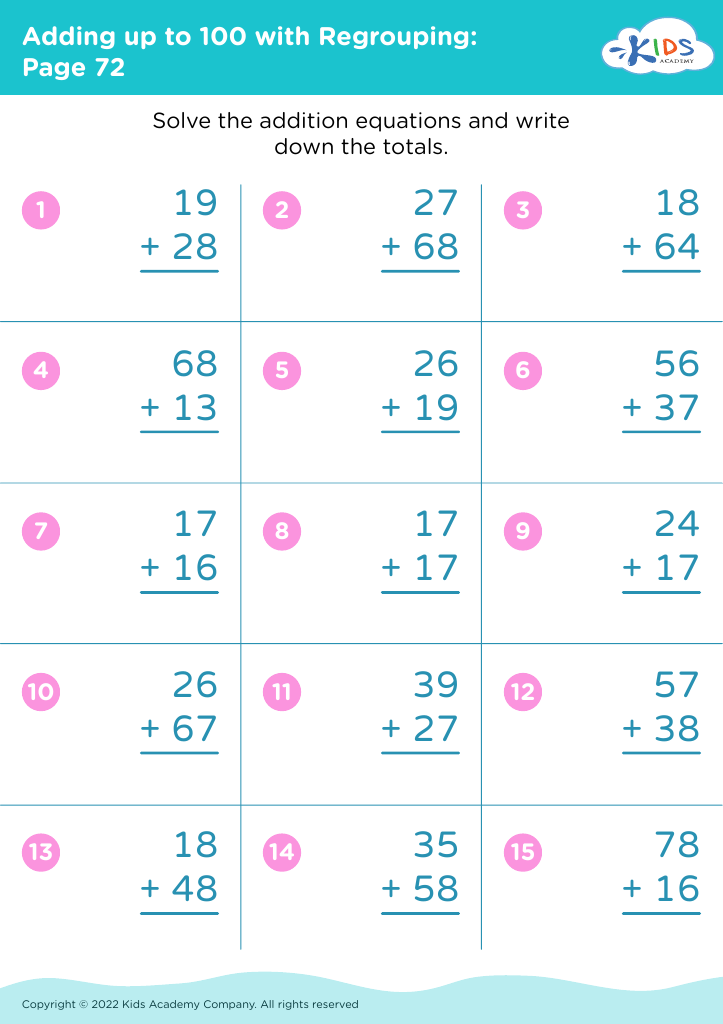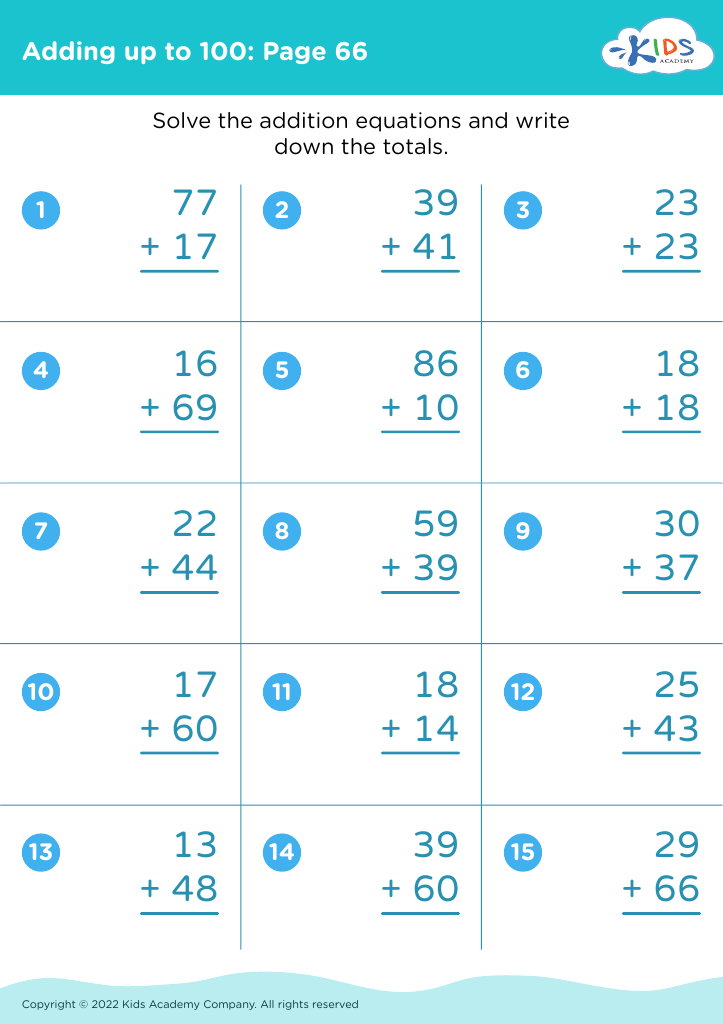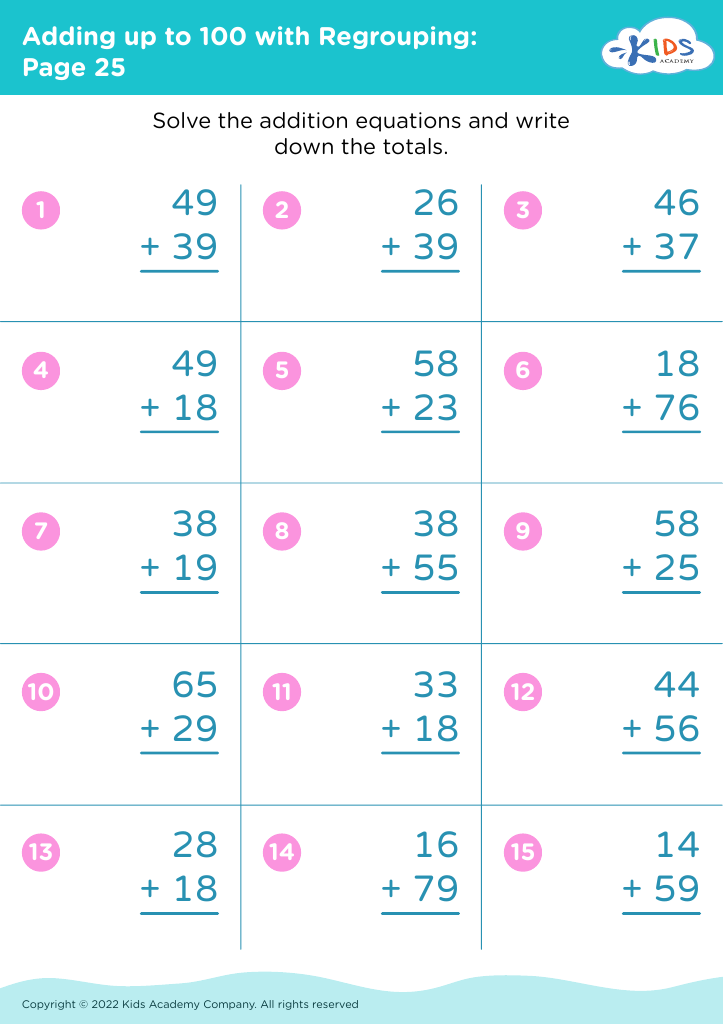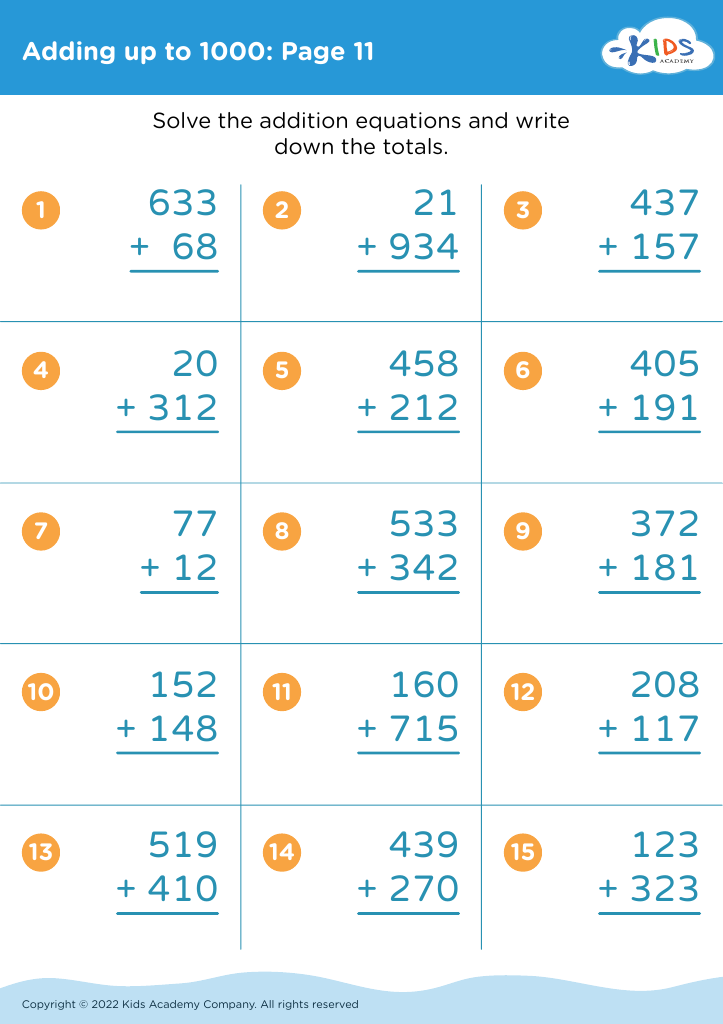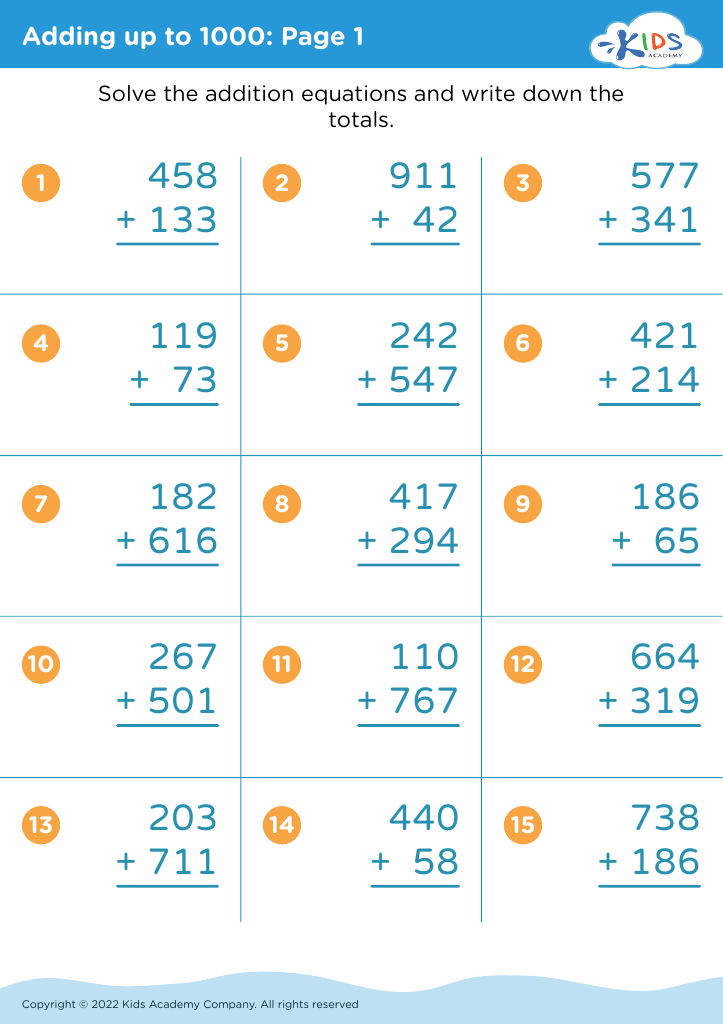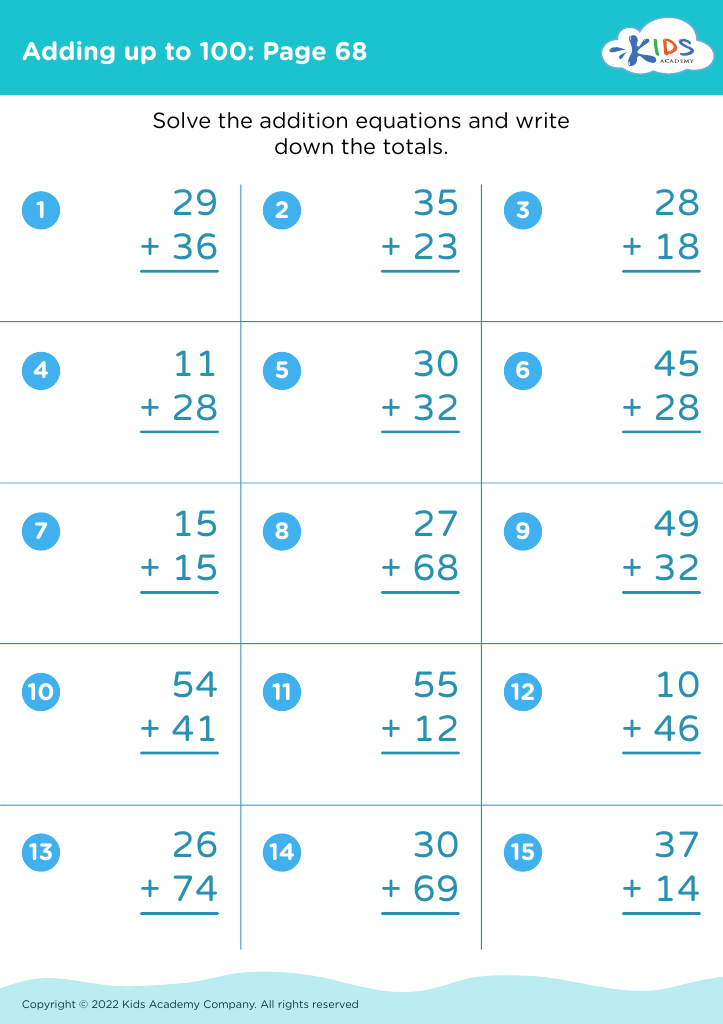Practice multiplication Addition Worksheets for Ages 3-8
8 filtered results
-
From - To
Discover our engaging multiplication and addition worksheets designed specifically for children aged 3-8! These fun and interactive printables help young learners build a strong foundation in math through practical exercises. Our worksheets encourage hands-on practice, reinforcing essential skills while keeping students motivated and engaged. From colorful illustrations to stimulating exercises, we cater to varying learning styles, making math a delightful experience. Perfect for classrooms or home use, our resources support parents and educators in fostering a love for numbers. Explore our collection today and watch your child's confidence in math skills soar! Start your math journey with us now!
Practicing multiplication and addition is essential for children aged 3-8, as these foundational skills serve as building blocks for their future mathematical understanding. At this age, children are developing critical cognitive abilities, and early exposure to mathematical concepts helps to enhance their problem-solving and logical reasoning skills. By engaging young learners with regular practice in addition and multiplication, caregivers can foster a positive attitude toward math, making it a fun and enjoyable subject rather than a source of anxiety.
Additionally, understanding these basic operations is crucial for everyday life, as they apply to situations like sharing, counting, and budgeting. Reinforcing these skills helps children develop confidence, which can impact their overall school performance and self-esteem.
Furthermore, early mastery of these operations sets the stage for more complex concepts like division, fractions, and algebra later in their education. Parents and teachers can support this learning through interactive games, hands-on activities, and practical applications that make the math both relevant and engaging. Ultimately, prioritizing practice in multiplication and addition not only prepares young children for academic success but also equips them with vital skills for real-world problem solving.


